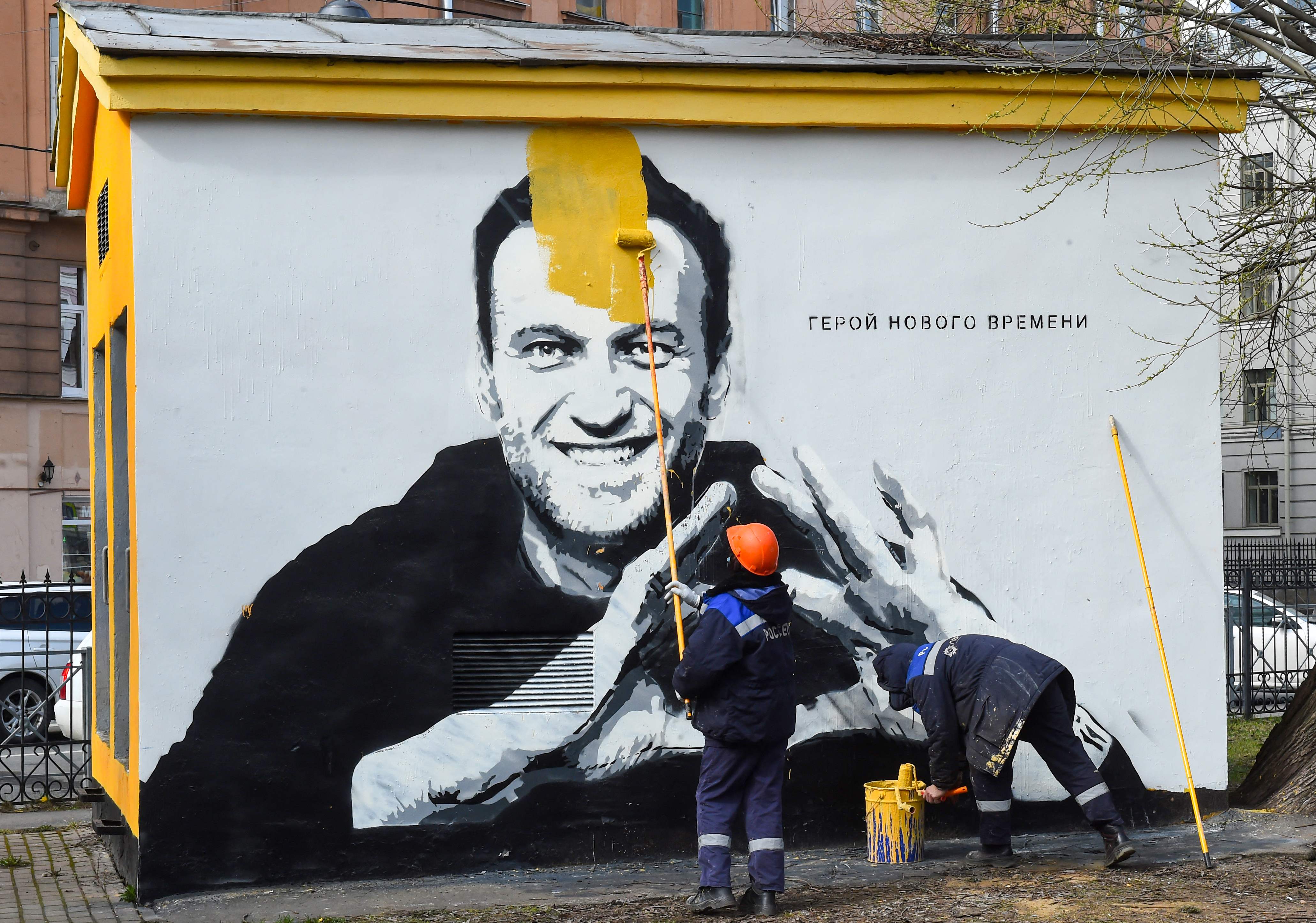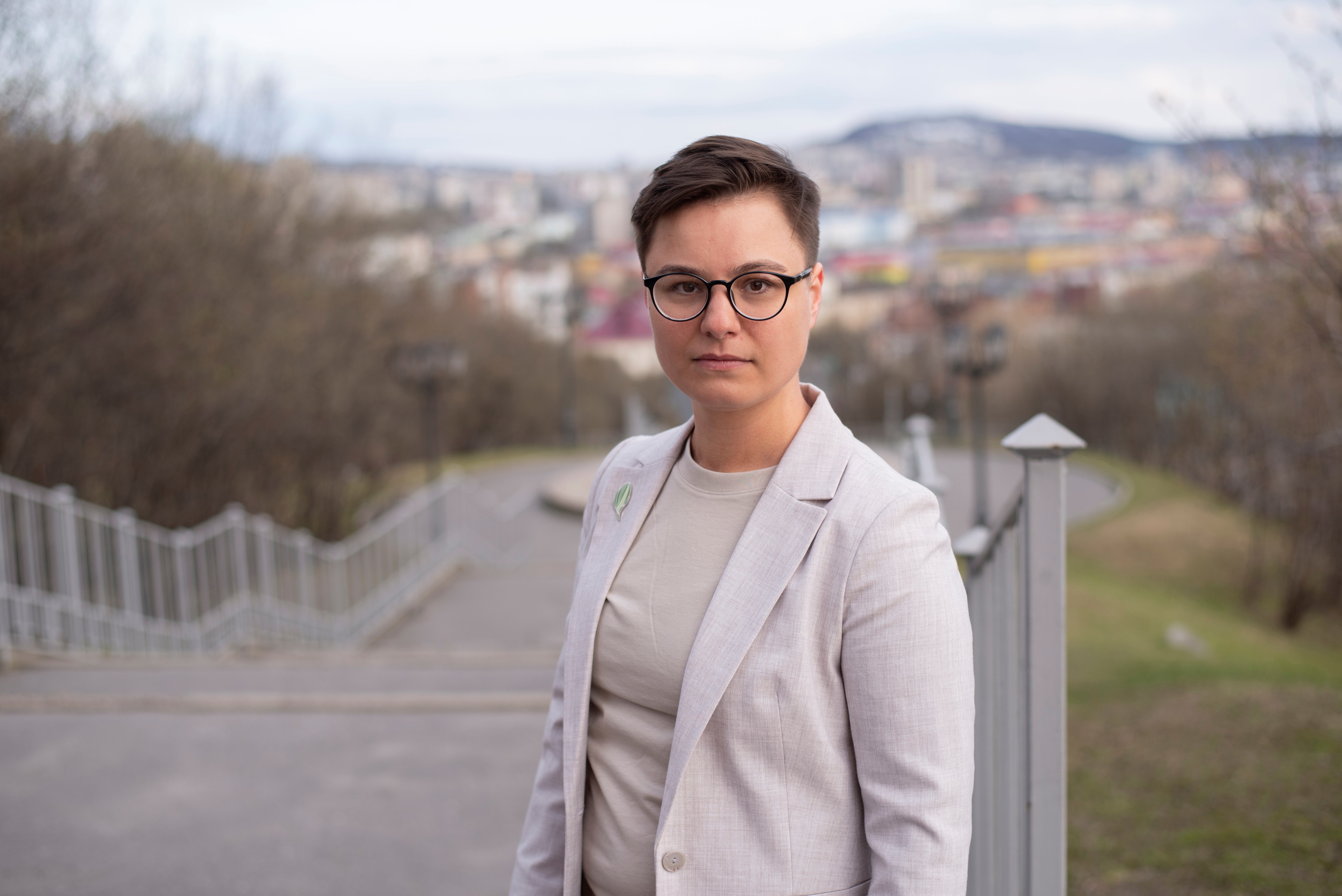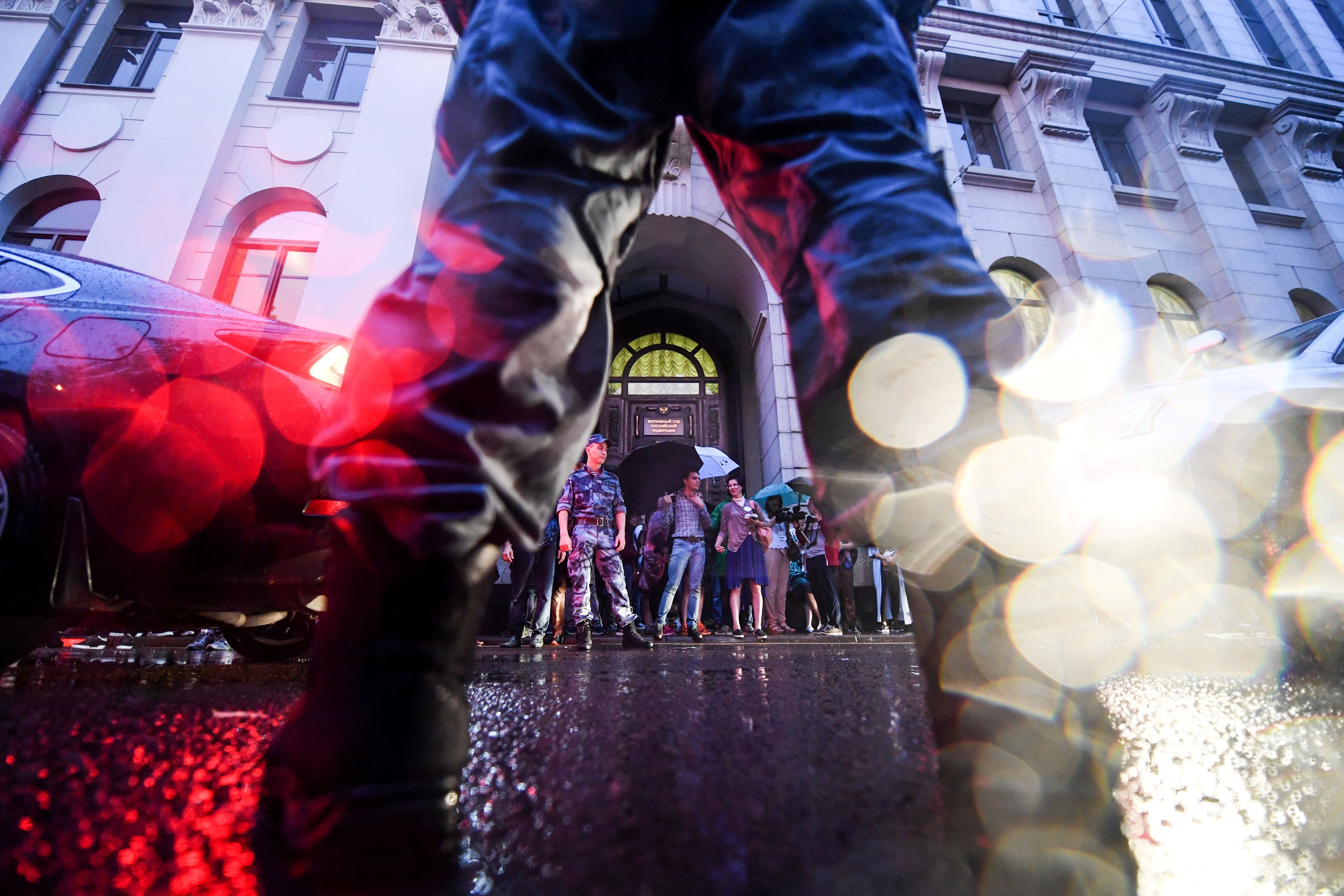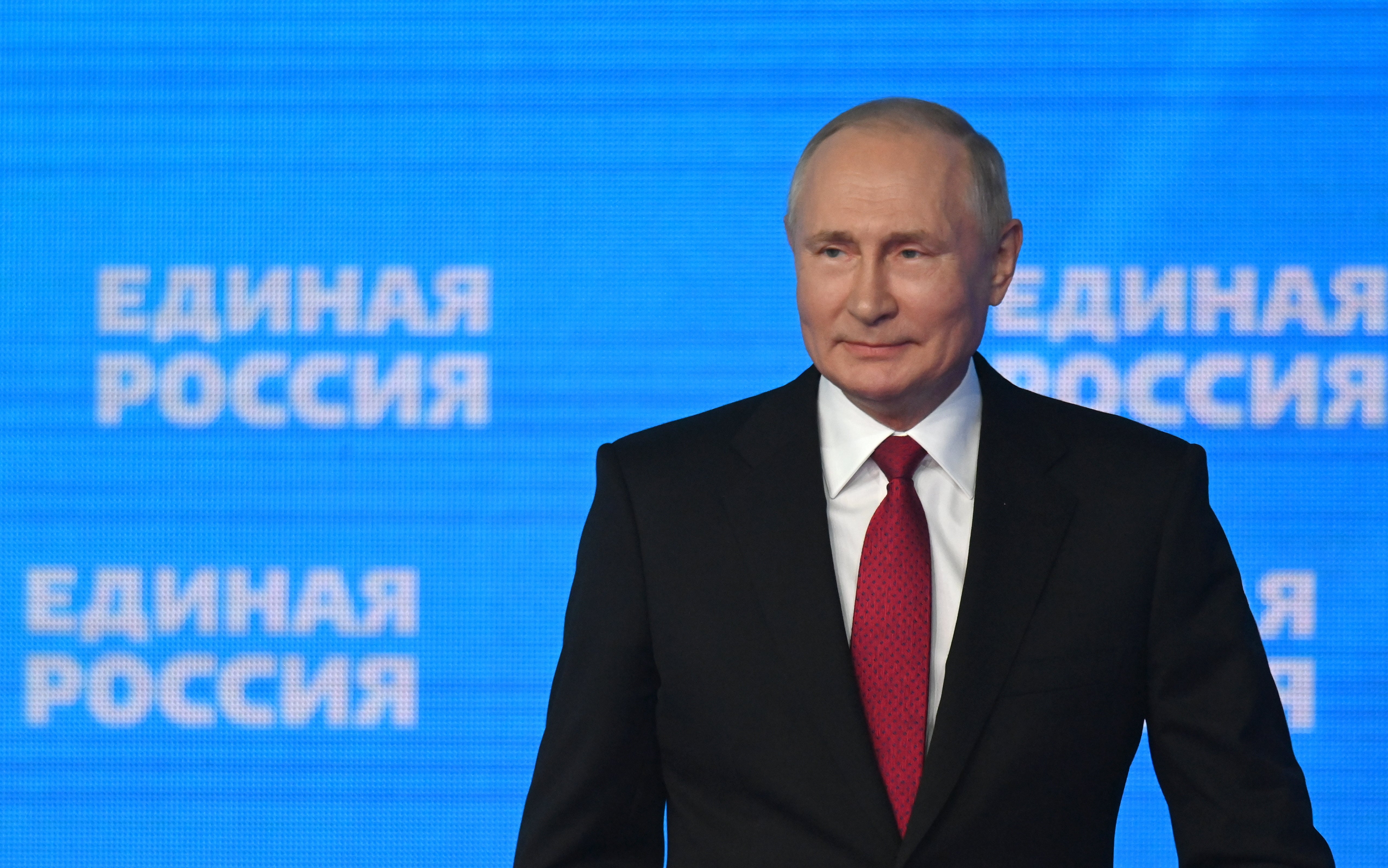Russian election: Isolated and demoralised, Team Navalny has a last roll of the dice
With his team criminalised or in exile, all eyes are on whether Alexey Navalny’s ‘smart voting’ strategy can undermine Vladimir Putin’s total control of Russian politics, writes Oliver Carroll


For the first 20 years of Vladimir Putin’s rule, Russian elections resembled a theatrical ruse. Every few years, parties of all colours would be rolled out onto the stage. But with tricks and lookalike candidates and parties, it was difficult to work out who was who.
This year, the Kremlin appears to have dispensed with any facade, removing even the illusion of choice for most democratic Russians – and criminalising many forms of dissent.
An unprecedented clampdown ahead of the 19 September elections has cleared the field of serious opponents of the regime. The main focus has been on Alexei Navalny and his political network.
Since the longtime nemesis’ brave (and perhaps foolish) return in February, the state machine has been working in overdrive.
First, he was jailed in a prison colony, then his organisation was banned, and his staff, supporters and anti-corruption ideology were labelled as extremist. The Navalny network was officially disbanded in April. And since then, many of his top associates and 37 regional managers have emigrated. Some have been jailed. About a quarter remain politically active in some way or another. Informally, they try to keep the Navalny mission relevant – but they face an uphill struggle.
Semyon Kochkin, who for nearly five years headed the Navalny movement in Cheboksary, central Russia, is one of the most active of those left behind despite being banned from running for elections for at least the next five years.
But neither that nor the threat of arrest, has stopped him from campaigning on YouTube. He continues to broadcast to his 30,000 followers on matters of corruption and local politics. His onscreen presence is engaging and he makes gestures uncannily similar to his boss.
Kochkin made a calculation that he continues to fall below the political radar and that local authorities believe arresting him will cause too much noise. That’s not to say he isn’t frightened. “Every day you read some new horror story, and you understand they might decide at any moment to strike,” he says. “I haven’t yet had clear signals they will, but maybe I’m just dumb.”

Violetta Grudina, 31, is another member of Navalny’s diehard brigade. A steely LGBT+ activist who headed the Murmansk office before April, she says the announcement to disband the network “destroyed” her. “It was always more than just a job for me,” she tells The Independent: “I loved my colleagues and what we were working on, and I believed in the mission.”
Ms Grudina quickly moved on from the disappointment though, launching a local election bid. But that was when her problems really began. Her office was vandalised and shot at. Anonymous leaflets, distributed among her neighbours, attacked her and her sexuality. She became a hate figure for local and national propaganda.
Even one defeated United Russia candidate in the September elections would be a victory for us, and the Kremlin knows it.
Given the clear orders from above, it was no surprise that Grudina’s election bid was blocked. More surprising was how local authorities handled it – hospitalising the apparently healthy Grudina in a Covid ward in Murmansk just before the deadline to file papers. It was arguably the most outrageous manoeuvre of hundreds of operations employed nationwide to keep independents off ballot papers.
But Team Navalny insists it is not yet a spent force in Russia, with hope still riding on its leader’s campaign for “smart voting”. This calls on Russians to vote tactically for the strongest opponent in battles with candidates from United Russia, the ruling party. Navalny’s team has come up with a list of “least bad” candidates in all national and some local elections.
Ruslan Shavedinnov, one of Navalny’s closest lieutenants, claims the ferociousness of the Kremlin’s crackdown is proof of the effectiveness of smart voting.
"Our task has always been to ruin United Russia’s party,” he said. “Even one defeated United Russia candidate in the September elections would be a victory for us, and the Kremlin knows it.”

Russia’s parliament is elected by a hybrid voting system. Half of its 450 deputies are elected by proportional representation lists, while the other half by first past the post. Navalny’s team are pinning most of its hopes on successes in the latter – especially in Moscow, where it believes several alternative candidates could be elected.
Competitive elections, and, more importantly, relatively honest counting, are also possible in major urban centres like St Petersburg, Yekaterinburg, Novosibirsk and Khabarovsk, in the far east. Khabarovsk emerged as an unexpected centre of protest in the weeks leading to Mr Navalny’s poisoning in August 2020.
Dmitry Oreshkin, a longtime election observer, said the success or otherwise of the strategy would depend on the ability of Navalny’s mostly foreign-based team to win the digital fight.
“The battle is down to who is able to block who,” he said. “There’s bound to be some diversionary conspiracy nearer election day, perhaps some fake smart voting list that will take time for people to untangle.”
Here, lines already appear to be drawn, with Russia’s state regulator on Friday calling on Apple and Google to remove Navalny’s “extremist” apps. “Failure to do so would be an infringement of Russian law ... and be viewed as foreign interference in our elections,” a statement read.
For twenty years, the system of power was built around the idea of monopolistic control, and that has only accelerated in the last year
Two days later, a court ruled that Navalny’s “smart voting” brand violated the intellectual rights of a wool company in southern Russia. It banned Google and Yandex, Russia’s main search engine, from showing Navalny’s campaign in search results but it is unclear if the search giants will fulfil the request.
Whatever the success of the Navalny tactical voting campaign, Russia’s voting system means that Vladimir Putin is guaranteed a 2/3 constitutional majority. This will happen either directly from United Russia deputies, or in combination with co-opted, controlled opposition parties.

Yet given the nature of Russia’s increasingly authoritarian politics, the appearance of any alternative political power in the parliament – of any candidate included in Navalny’s lists – would be seen as a worrying defeat.
"For 20 years, the system of power was built around the idea of monopolistic control, and that has only accelerated in the last year,” says Oreshkin.
“It isn’t hard to understand why even the prospect of even one alternative candidate is seen as an existential crisis.”




Join our commenting forum
Join thought-provoking conversations, follow other Independent readers and see their replies
3Comments